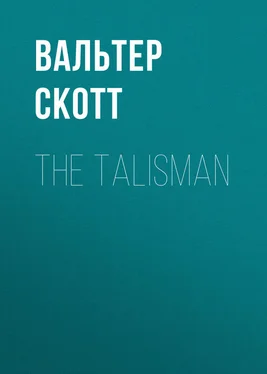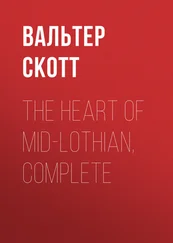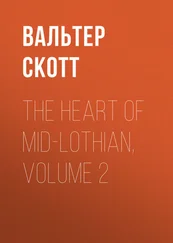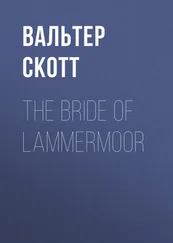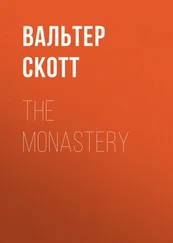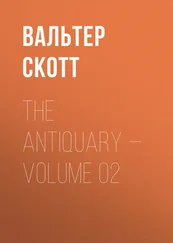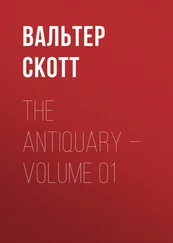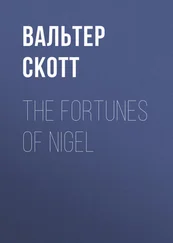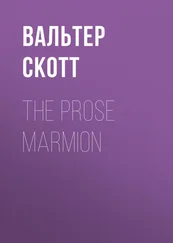Вальтер Скотт - The Talisman
Здесь есть возможность читать онлайн «Вальтер Скотт - The Talisman» — ознакомительный отрывок электронной книги совершенно бесплатно, а после прочтения отрывка купить полную версию. В некоторых случаях можно слушать аудио, скачать через торрент в формате fb2 и присутствует краткое содержание. Жанр: foreign_antique, foreign_prose, на английском языке. Описание произведения, (предисловие) а так же отзывы посетителей доступны на портале библиотеки ЛибКат.
- Название:The Talisman
- Автор:
- Жанр:
- Год:неизвестен
- ISBN:нет данных
- Рейтинг книги:3 / 5. Голосов: 1
-
Избранное:Добавить в избранное
- Отзывы:
-
Ваша оценка:
- 60
- 1
- 2
- 3
- 4
- 5
The Talisman: краткое содержание, описание и аннотация
Предлагаем к чтению аннотацию, описание, краткое содержание или предисловие (зависит от того, что написал сам автор книги «The Talisman»). Если вы не нашли необходимую информацию о книге — напишите в комментариях, мы постараемся отыскать её.
The Talisman — читать онлайн ознакомительный отрывок
Ниже представлен текст книги, разбитый по страницам. Система сохранения места последней прочитанной страницы, позволяет с удобством читать онлайн бесплатно книгу «The Talisman», без необходимости каждый раз заново искать на чём Вы остановились. Поставьте закладку, и сможете в любой момент перейти на страницу, на которой закончили чтение.
Интервал:
Закладка:
CHAPTER VI
Now change the scene – and let the trumpets sound,
For we must rouse the lion from his lair.
The scene must change, as our programme has announced, from the mountain wilderness of Jordan to the camp of King Richard of England, then stationed betwixt Jean d’Acre and Ascalon, and containing that army with which he of the lion heart had promised himself a triumphant march to Jerusalem, and in which he would probably have succeeded, if not hindered by the jealousies of the Christian princes engaged in the same enterprise, and the offence taken by them at the uncurbed haughtiness of the English monarch, and Richard’s unveiled contempt for his brother sovereigns, who, his equals in rank, were yet far his inferiors in courage, hardihood, and military talents. Such discords, and particularly those betwixt Richard and Philip of France, created disputes and obstacles which impeded every active measure proposed by the heroic though impetuous Richard, while the ranks of the Crusaders were daily thinned, not only by the desertion of individuals, but of entire bands, headed by their respective feudal leaders, who withdrew from a contest in which they had ceased to hope for success.
The effects of the climate became, as usual, fatal to soldiers from the north, and the more so that the dissolute license of the Crusaders, forming a singular contrast to the principles and purpose of their taking up arms, rendered them more easy victims to the insalubrious influence of burning heat and chilling dews. To these discouraging causes of loss was to be added the sword of the enemy. Saladin, than whom no greater name is recorded in Eastern history, had learned, to his fatal experience, that his light-armed followers were little able to meet in close encounter with the iron-clad Franks, and had been taught, at the same time, to apprehend and dread the adventurous character of his antagonist Richard. But if his armies were more than once routed with great slaughter, his numbers gave the Saracen the advantage in those lighter skirmishes, of which many were inevitable.
As the army of his assailants decreased, the enterprises of the Sultan became more numerous and more bold in this species of petty warfare. The camp of the Crusaders was surrounded, and almost besieged, by clouds of light cavalry, resembling swarms of wasps, easily crushed when they are once grasped, but furnished with wings to elude superior strength, and stings to inflict harm and mischief. There was perpetual warfare of posts and foragers, in which many valuable lives were lost, without any corresponding object being gained; convoys were intercepted, and communications were cut off. The Crusaders had to purchase the means of sustaining life, by life itself; and water, like that of the well of Bethlehem, longed for by King David, one of its ancient monarchs, was then, as before, only obtained by the expenditure of blood.
These evils were in a great measure counterbalanced by the stern resolution and restless activity of King Richard, who, with some of his best knights, was ever on horseback, ready to repair to any point where danger occurred, and often not only bringing unexpected succour to the Christians, but discomfiting the infidels when they seemed most secure of victory. But even the iron frame of Coeur de Lion could not support without injury the alternations of the unwholesome climate, joined to ceaseless exertions of body and mind. He became afflicted with one of those slow and wasting fevers peculiar to Asia, and in despite of his great strength and still greater courage, grew first unfit to mount on horseback, and then unable to attend the councils of war which were from time to time held by the Crusaders. It was difficult to say whether this state of personal inactivity was rendered more galling or more endurable to the English monarch by the resolution of the council to engage in a truce of thirty days with the Sultan Saladin; for on the one hand, if he was incensed at the delay which this interposed to the progress of the great enterprise, he was, on the other, somewhat consoled by knowing that others were not acquiring laurels while he remained inactive upon a sick-bed.
That, however, which Coeur de Lion could least excuse was the general inactivity which prevailed in the camp of the Crusaders so soon as his illness assumed a serious aspect; and the reports which he extracted from his unwilling attendants gave him to understand that the hopes of the host had abated in proportion to his illness, and that the interval of truce was employed, not in recruiting their numbers, reanimating their courage, fostering their spirit of conquest, and preparing for a speedy and determined advance upon the Holy City, which was the object of their expedition, but in securing the camp occupied by their diminished followers with trenches, palisades, and other fortifications, as if preparing rather to repel an attack from a powerful enemy so soon as hostilities should recommence, than to assume the proud character of conquerors and assailants.
The English king chafed under these reports, like the imprisoned lion viewing his prey from the iron barriers of his cage. Naturally rash and impetuous, the irritability of his temper preyed on itself. He was dreaded by his attendants and even the medical assistants feared to assume the necessary authority which a physician, to do justice to his patient, must needs exercise over him. One faithful baron, who, perhaps, from the congenial nature of his disposition, was devoutly attached to the King’s person, dared alone to come between the dragon and his wrath, and quietly, but firmly, maintained a control which no other dared assume over the dangerous invalid, and which Thomas de Multon only exercised because he esteemed his sovereign’s life and honour more than he did the degree of favour which he might lose, or even the risk which he might incur, in nursing a patient so intractable, and whose displeasure was so perilous.
Sir Thomas was the Lord of Gilsland, in Cumberland, and in an age when surnames and titles were not distinctly attached, as now, to the individuals who bore them, he was called by the Normans the Lord de Vaux; and in English by the Saxons, who clung to their native language, and were proud of the share of Saxon blood in this renowned warrior’s veins, he was termed Thomas, or, more familiarly, Thom of the Gills, or Narrow Valleys, from which his extensive domains derived their well-known appellation.
This chief had been exercised in almost all the wars, whether waged betwixt England and Scotland, or amongst the various domestic factions which then tore the former country asunder, and in all had been distinguished, as well from his military conduct as his personal prowess. He was, in other respects, a rude soldier, blunt and careless in his bearing, and taciturn – nay, almost sullen – in his habits of society, and seeming, at least, to disclaim all knowledge of policy and of courtly art. There were men, however, who pretended to look deeply into character, who asserted that the Lord de Vaux was not less shrewd and aspiring than he was blunt and bold, and who thought that, while he assimilated himself to the king’s own character of blunt hardihood, it was, in some degree at least, with an eye to establish his favour, and to gratify his own hopes of deep-laid ambition. But no one cared to thwart his schemes, if such he had, by rivalling him in the dangerous occupation of daily attendance on the sick-bed of a patient whose disease was pronounced infectious, and more especially when it was remembered that the patient was Coeur de Lion, suffering under all the furious impatience of a soldier withheld from battle, and a sovereign sequestered from authority; and the common soldiers, at least in the English army, were generally of opinion that De Vaux attended on the King like comrade upon comrade, in the honest and disinterested frankness of military friendship contracted between the partakers of daily dangers.
Читать дальшеИнтервал:
Закладка:
Похожие книги на «The Talisman»
Представляем Вашему вниманию похожие книги на «The Talisman» списком для выбора. Мы отобрали схожую по названию и смыслу литературу в надежде предоставить читателям больше вариантов отыскать новые, интересные, ещё непрочитанные произведения.
Обсуждение, отзывы о книге «The Talisman» и просто собственные мнения читателей. Оставьте ваши комментарии, напишите, что Вы думаете о произведении, его смысле или главных героях. Укажите что конкретно понравилось, а что нет, и почему Вы так считаете.
